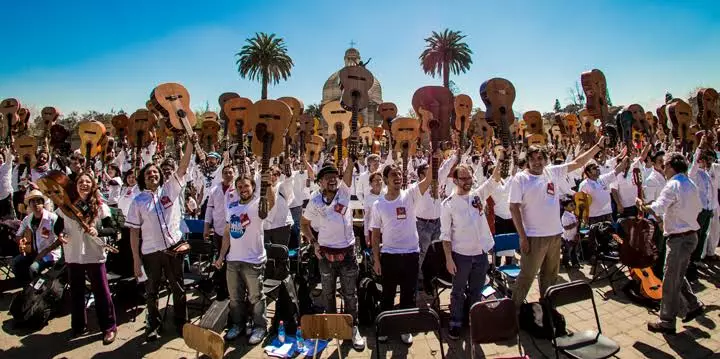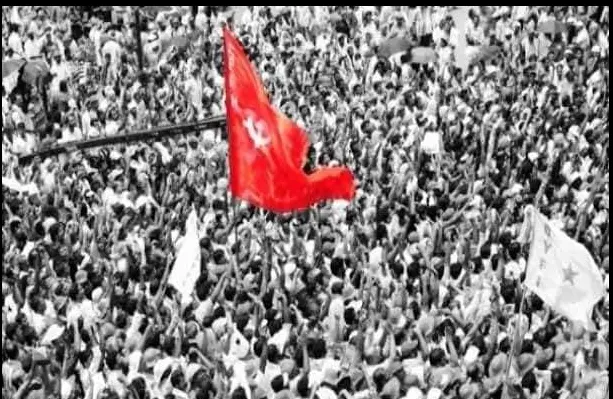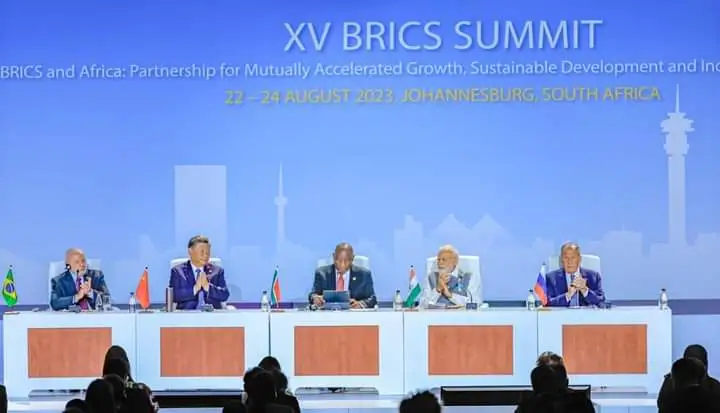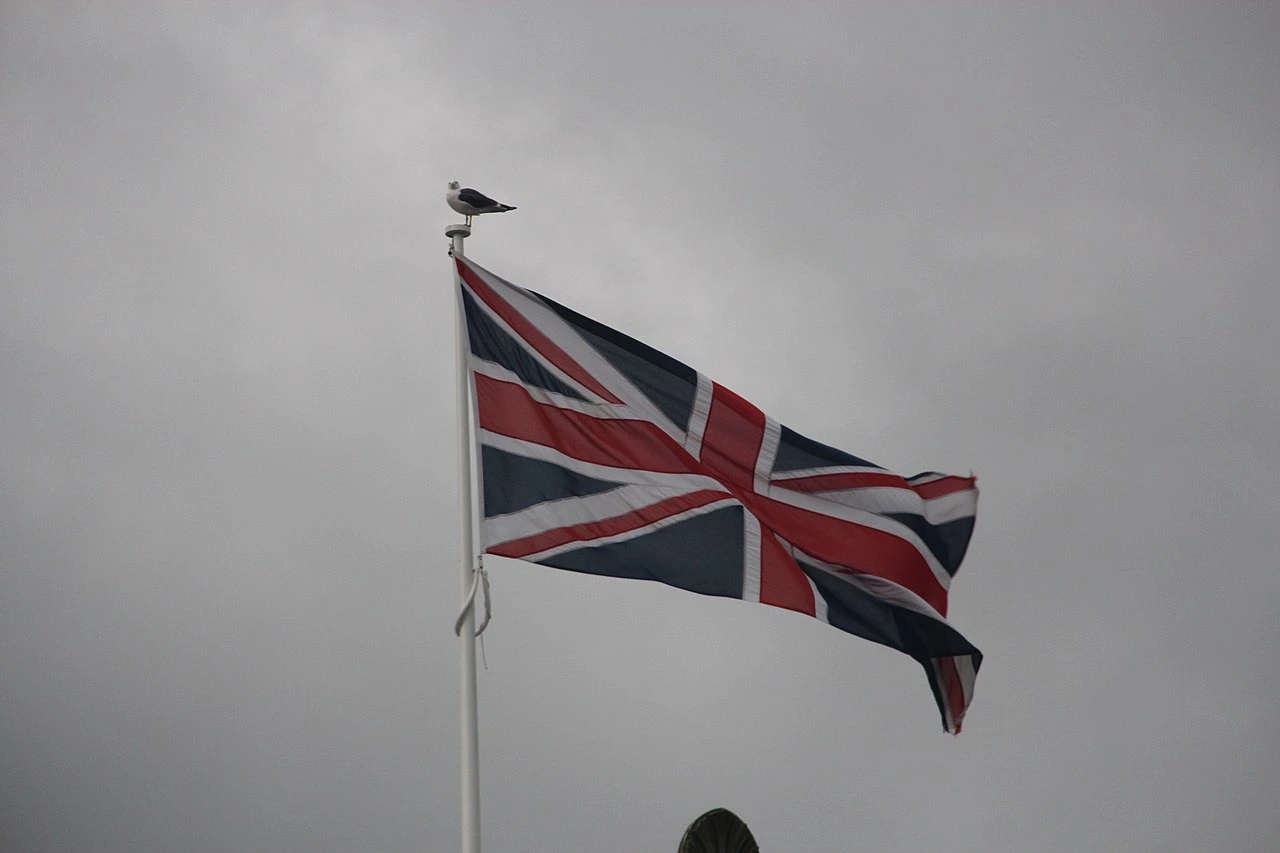This led to him being indicted in 1957 for contempt of Congress, as was the case with many other prominent figures including the famous screenwriter Dalton Trump and the artist Will Gere Sieger who were sentenced to prison, which was later be overturned, but he was banned from traveling because of being blacklisted. Many argue that Sieger remained a staunch communist and critic of capitalism for the rest of his life, committed to his ideals, never renouncing his strong leftist views. However, Sieger later in the years, responding to criticism that he was a Stalinist apologist, increasingly sought to distance himself from his communist past, sharply criticizing the Soviet regime under Brezhnev, while in the 1980s holding concerts in support of Polish anti-communist Solidarity union led by Lech Walesa. He experienced complete self-devaluation in 2009 when he had the "honor" to sing at the inauguration of military interventionist Barack Obama. Sieger is remembered for putting the song We Shall Overcome back on the repertoire, which was also performed by Guy Caravan in 1959, and later at Woodstock '69 by Joan Baez. The song is considered the unofficial anthem of the American civil rights movement in the 1960s, based on a gospel refrain by a black Methodist priest and composer, Charles Albert Tyndley. Sieger is most associated with the legendary Woody Guthrie, the American folk singer, musician and songwriter, one of the most influential figures in the development of American music in the 20th century. A man whose communist worldview will be an inspiration to many in the United States to openly oppose McCarthy's madness and witch-hunting. His This Land is Your Land will become a kind of alternative anthem of the United States, a song that is his major work.
The already mentioned Joan Baez also has an important place in the annals of politically engaged art. Baez is synonymous with rebellion, protest and reaction in society. A woman who sticks to the maxim, that in engaged art silence is not gold. It is proof that artists are most dangerous when they are loud. Born into a Quaker family that had a major impact on her worldview. Her engagement succeeded in mobilizing large masses of young people who leaned towards counterculture in the 1960s, when some of the most radical changes in Western capitalist society took place. In 1963 she performed the song We Shall Overcome at the Washington March, led by Dr. Martin Luther King. In the late 1960s and early 1970s, she was active in the anti-war campaign, visiting North Vietnam in late 1972. Unfortunately, as in the case of Pete Sieger, Joan Baez publicly supported the candidacy of military interventionist Barack Obama. Interestingly, many of the politically engaged artists, musicians, and songwriters in their lifetime distanced themselves from any connection to the Communist Party of the United States and its activities. Even those who in any way were in contact with its members in the early years, such as the example of prominent country singer and artist Tex Ritter, the founder of the Country Music Association, who in an interview with the New York Times in 1970 in about the beginnings of his career and contacts with progressive leftists in New York will state:
"In those years in New York I got to know the communists quite well. I knew them. They listened to my songs. I used to call myself a folk singer. In those few years it came to a point where it was very difficult to say, where folk music ended and where communism began. "That's when I stopped calling myself a folk singer."

However, unlike the repentant communist Sieger and the liberal Baez, another artist, and above all a pedagogue, teacher and political activist, became a martyr of the military junta regime in Chile, led by General Augusto Pinochet, who overthrew the first socialist President-elect Salvador Allende. The great human rights activist and one of the symbols of the revolutions in Latin America, Victor Jara. The man with a big heart and a clear mind, who spoke publicly on behalf of Salvador Allende about Chile as a country of socialist values and prosperity of the Chilean people. But the CIA and its spy agents in the form of Chicago Boys-type economic emissaries did not think so. On September 11, 1973, with the help of the far-right opposition and the army, they staged a coup that brought Army General Pinochet to power, while in a violent coup they assassinated the legitimately elected President Allende, who had taken office three years earlier. The coup in Chile, part of Operation Condor in South America, killed hundreds of associates and supporters of President Allende, including Victor Jara, as well as the world-famous poet Pablo Neruda, who was believed to have been killed a few days later in Argentina where he is on the run. In the years to come, the regime of Augusto Pinochet liquidated tens of thousands more who opposed his repression, paying the price of freedom with blood. Victor Jara as a victim of the altar of freedom left his young life which he previously dedicated to the young Chilean generations who today after almost half a century as people in old age speak only in superlatives about the great humanist and freedom fighter Victor Jara. Victor's opus with anti-colonial charge and revolutionary enthusiasm, among others, being the great revolutionary names such as Ernesto "Che" Guevara and Camilo Torres. Songs that still boil the blood of many subjugated peoples from the Panama Canal to the Land of Fire.


Another musician, no less valuable than Bob Dylan and Leonard Cohen, is certainly the little-known Sixto Rodriguez, an American folk singer and songwriter born in 1942 in Detroit, Michigan. This remarkable musician, whose career took a turn for the worse after his two albums were released in the early 1970s, was marginalized by the American radio stations, not so much because of his rejection of his music, but because of his sharp criticism of American capitalist society both as a musician and as a songwriter. Until, almost three decades later, he was "accidentally" rediscovered in the Republic of South Africa by two of his admirers who would later initiate his search and find in the United States. A few years after his discovery, he was re-promoted in the media through the documentary Searching for Sugar Man, an Oscar winner in 2013, as well as the prestigious BAFTA of the same year, plus a special award at the prestigious Sundance Festival a year earlier, and many other awards and nominations. However, what is most significant in the work of Sixto Rodriguez is that his music was generally accepted in the time of Apartheid in South Africa, where in the midst of total media darkness and horrific persecution by the regime, copies of his albums Cold Fact and Coming from Reality appeared, in the lyrics of which many recognised his sharp critical narrative of the social character of American society. Many of his songs became anthems against the apartheid regime in South Africa. Unaware of the fact that he is popular in South Africa, where Rodriguez is considered more popular than Bob Dylan, disappointed by the response of the American public to his work, he withdrew from the music scene and lived a completely normal life, sometimes accompanied by hard physical work for bare survival. Rodriguez was fully aware of all aspects of the poorest in society, so he did not give up his political engagement. On the contrary, he continues to point out all the anomalies his community encounters and is actively working in the field of working class education in Detroit, which is increasingly falling into a stalemate that culminates in the collapse of the automotive industry and the dismissal of thousands of workers. He even participates in a political campaign to enter the city government, from where he could act more effectively. Among his greatest admirers and followers of his work is the name of Steve Biko, a South African anti-apartheid activist and African socialist, leader of the Black Consciousness Movement - BCM. A movement through which Biko seeks to organize the majority black population in the fight against the regime of white immigrants. After the riots in Soweto, he was arrested and beaten to death, becoming the most famous martyr of the anti-apartheid movement in South Africa. In his honor, in 1980, Peter Gabriel dedicated the song Biko to him.

Also worth mentioning is the engagement of the Beatles member John Lennon, who on many occasions publicly criticized the policy of interventionism in the world, following the example of the Vietnam War, but also the Apartheid regime in South Africa. Some of his songs like Working Class Hero; War Is Over; Power to the People; Imagine and Give Peace a Chance left an indelible mark on the history of music, but also on politically engaged art. When it comes to social and political engagement in music, one can not fail to mention the many musicians around the world, devastated by military conflicts, countries in which, after the rejection of colonialism, internal ethnic conflicts continued to threaten peace, welfare and prosperity of their citizens. In the area from Kingston to Mogadishu and from El Ayun to Soweto, we witness hundreds of names who with their creative work in music in the form of politically engaged art, managed to be corrective but also initiators of social change, by rejecting colonialism, condemning imperialism and a critique of the capitalist world order. Almost everyone, without exception, called for an organized struggle against the ruling structure of the bourgeoisie and its political lackeys. In the end I would mention only a few names, starting with the inimitable Bob Marley, a man whose whole life was reduced to civil protest, as well as representatives of the anti-colonial music wave such as Fela Kuti, Ali Farka Toure, Habib Koite, Rocia Traore, Amadou and Mariam, and the band Tinariven, whose leader Ibrahim Al Habib is a notion of an anti-colonial fighter. Most of them belong to the free peoples of sub-Saharan Africa, the Mauri, the Sahara and the Tuareg, who never allowed themselves to be subjected to the yoke of foreign invaders and foreign interests. No less important to mention are the lesser-known Aziza Brahim, Mariam Hassan, Naim Alal and Tiris, who bravely support the revolutionary struggle of the Polisario movement for the liberation of Western Sahara by the Kingdom of Morocco, which has occupied this territory, as well as the free state Azavad. The struggle continues today, as evidenced by countless music performers, fierce critics of the existing capitalist system. The members of the group Yorum Grup are the biggest witnesses to that, even giving their lives for freedom, going on hunger strike to death. In 2020, bassist Ibrahim Gekcek and vocalist Helin Bölek passed away. In February 2021, the famous Spanish rapper Pablo Hassel was arrested again for "insulting" the royal crown and glorifying terrorism, acts for which a Spanish court sentenced him to 9 months in prison.
However, the struggle continues until the final victory and the attainment of freedom. Because, as the great German philosopher G. W. F. Hegel would say: "The one who merely flees is not yet free".
Click here to read the 1st part of this article.






